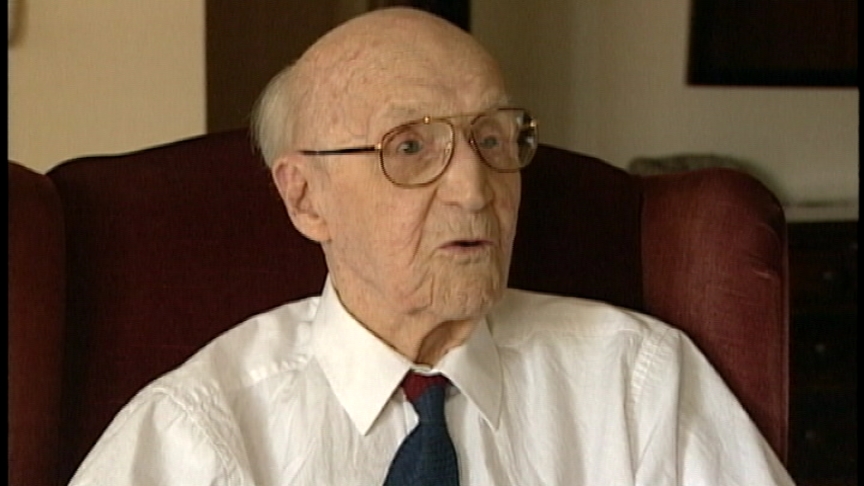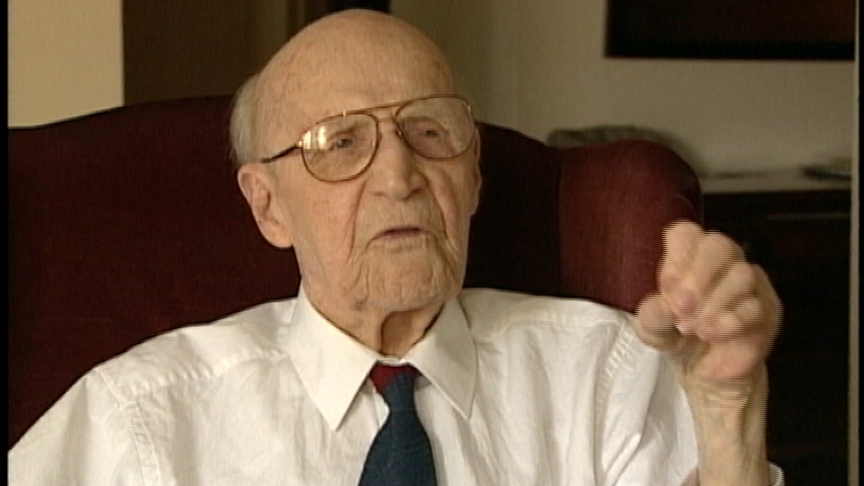Our Brigade went to Germany.
Heroes Remember
Our Brigade went to Germany.
Transcript
Description
Mr. Manson describes the subdued reaction to the armistice, and describes then joining the Army of Occupation in Germany, and in particular interacting with the local civilians.
Arthur Bennett Manson
Arthur Manson was born in Nanaimo, British Columbia on March 5, 1899, as the second of three children. His father worked as a lumberman, then became a provincial politician, moving his family to Fort Simpson and finally to Prince Rupert. The family moved to Victoria when his father became BC’s Minister of Agriculture. Arthur Manson’s older brother had enlisted as a machine gunner and had attained the rank of lieutenant. Mr. Manson enlisted at Victoria in March, 1917, stating that it was “the thing to do.” He trained in Petawawa, Ontario as an artilleryman, and did the same at Whitley in England. However, he was spared front line duty by being attached to 2nd Brigade Headquarters. After the armistice, Mr. Manson joined the army of occupation in Germany. When he returned to Canada, Mr. Manson obtained his medical degree and practiced medicine in British Columbia. When the Second World War was under way, he joined the Forces as a Medical Officer in BC in response to the perceived threat from Japan.
Meta Data
- Medium:
- Video
- Owner:
- Veterans Affairs Canada
- Duration:
- 3:09
- Person Interviewed:
- Arthur Bennett Manson
- War, Conflict or Mission:
- First World War
- Location/Theatre:
- Europe
- Branch:
- Army
- Units/Ship:
- 2nd Brigade Headquarters
- Occupation:
- Adjutant
Related Videos
- Date modified:








